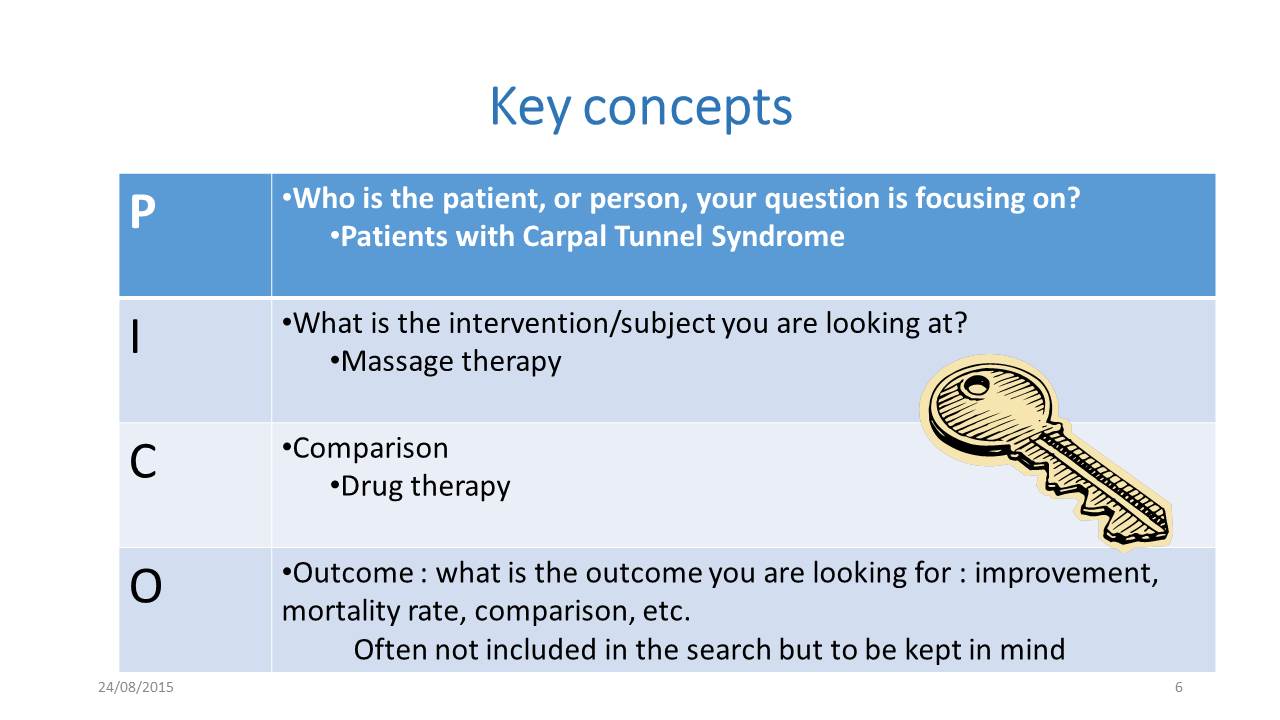A good research question should be clear, concise, specific and arguable, and forms the basis of your research, for example “What are the fluid requirements specific to young athletes?”
A useful technique employed in the formulation of clinical questions is the PICO Model - using PICO, a clinical question is divided into 3 or 4 elements - Patient, Intervention, Comparison* and Outcome.

* when applicable
Defining your inclusion and exclusion criteria in advance is as important as defining your question and are determined by your research question.
These criteria determine which ‘subjects’ (studies) will be included in or excluded from the review and provide a safeguard against subjective selection bias by the reviewers.
Inclusion/exclusion criteria usually include:
See: Cochrane Handbook for Systematic Reviews of Interventions, Chapter 5: Defining the review question and developing criteria for including studies

See the Cochrane Handbook for Systematic Reviews of Interventions (2011,Sections 5.2-5.6) for more details about factors to be considered when developing criteria for your PICO elements.
Finding systematic reviews
Before beginning a systematic review, it is advisable to check whether another research group may be working on a similar review.
